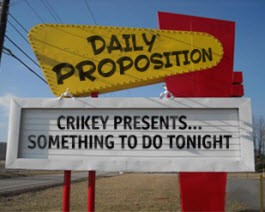
“Since singing is so good a thing, I wish all men [sic] would learn to sing.”
The 16th century English composer William Byrd — who was persecuted for his Catholic faith, but wrote extensively and beautifully for the human voice in worship — recognised the many virtues of singing and considered it “delightful to nature”. Many 20th century Australians, having variously suffered through group singing at school, proceeded to swear off it for good. Today’s proposition, however, is that you give choral singing a second look (and listen).
In an age of extreme specialisation, when public music making tends to be left to those who do it brilliantly and the description “amateur” is rarely a mark of esteem, the community choir proudly bucks the trend. The public policy scholar Robert Putnam, in his book Bowling Alone: The Collapse and Revival of American Community (2000), had much to say about the then-newly (re)fashionable concept of social capital and choirs, together with “music and theatrical groups” generally, feature fairly high on his list of proxies for cultural cohesion.
And why wouldn’t they? The co-operation, reciprocity, communication and trust embodied in a choir are the very stuff of creating (and maintaining) social connection. One aspect of singing in ensembles that I’ve long appreciated (for its potential subversion value, if nothing else) is that, in an age that is also relentlessly individualistic, a choir by definition cannot work if the one is not subsumed to the greater ends of the many. Yes, it needs to be a mixed group of individuals but ultimately, they must all be singing from the same page — metaphorically as well as literally.
It isn’t just the singing, either; groups such as this tend to have a shared culture, a particular orientation toward the world. My own specific area of interest, Renaissance polyphony –unaccompanied, multivoice music written between about the 14th and 16th centuries, and championed in the present day by groups such as The Tallis Scholars, is joyously nerdy, peopled by individuals who’ve collectively spent far too much time in pursuits of the mind. However, should you prefer your Europeans less dead, less exclusively male but still (in) white, well, there’s always the likes of this mob — or, if you want to push your preconceptions a little more, the Spooky Men’s Chorale. They definitely believe all men should learn to sing. (And if you like to consort with the ladies, it’s worth noting that women make up well over half of all the singers in just about any mixed-voice choir you care to name … just saying.)
Last week I went to visit a friend in hospital; only days earlier, she had been suddenly diagnosed with terminal cancer and doesn’t have much time remaining. We sang together several years ago, and choirs do tend to make for enduring relationships, so when the word went out for people to come and sing for — with — her, of course I wanted to be there. Others might have been limited to bringing flowers and wishing they could do something more helpful; we took music and the occasion turned into a bit of a party. In doing so, we affirmed some wonderful memories, made her feel a little better — and all of us, a little less alone.
Personal creativity, entertaining diversion and even social utility: that William Byrd might’ve been onto something.
The details: This Sunday is World Choral Day. Michelle Imison is a Crikey subscriber and choir tragic who sings at Christ Church St Laurence in Sydney.







Onya Michelle, I’m still singing with Astra many years on for many reasons you name – the connection, the diversity – and of course the music. But I think ‘choir tragic’ is a harsh label – surely it’s ‘choral adventuress’?
awesome work. if i could e-sing my approval, I would. Laaaaah!!
I am an aged, grey-haired, ex pub rock musician and roadie. I now sing in two choirs. I love it. I agree, that, in my experience, there are always more women than blokes. But we always need more of both.
The Royal Prince Alfred Hospital singers (RPAH, Sydney) are singing christmas carols at 12:30 Pm Tuesday 14th (womens and babie’s entrance) and Thursday 16th (main entrance).
@Anna Gifford- much as I wouldn’t usually want to compare myself to John Howard, I’m a ‘choir tragic’ in the same way he was a ‘cricket tragic’.
@Bill Ross- spoken like a true performer: take *any* opportunity going to promote your own gigs!
Happy singing, one and all…
Spooky Men’s Chorale ROCK!